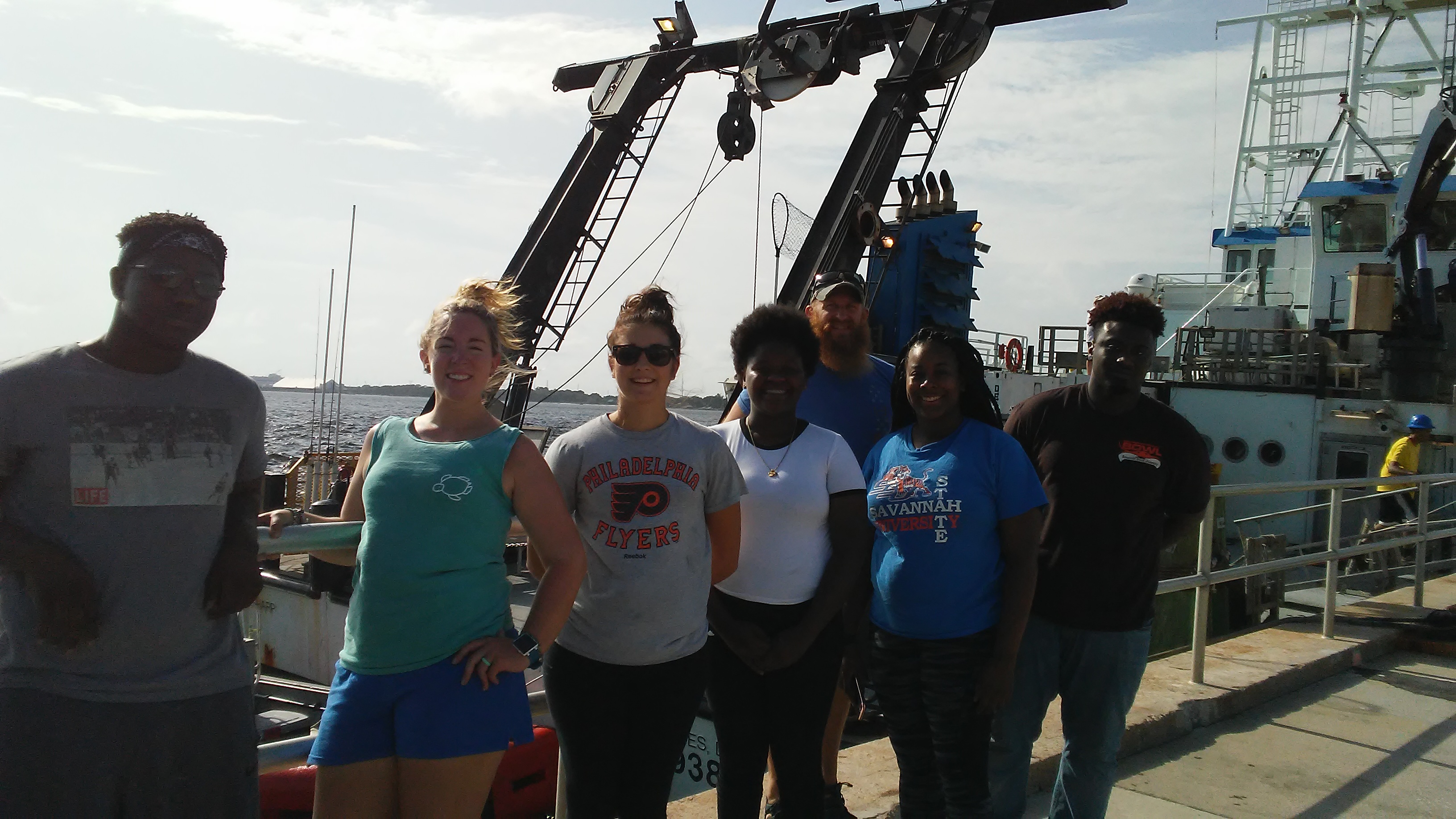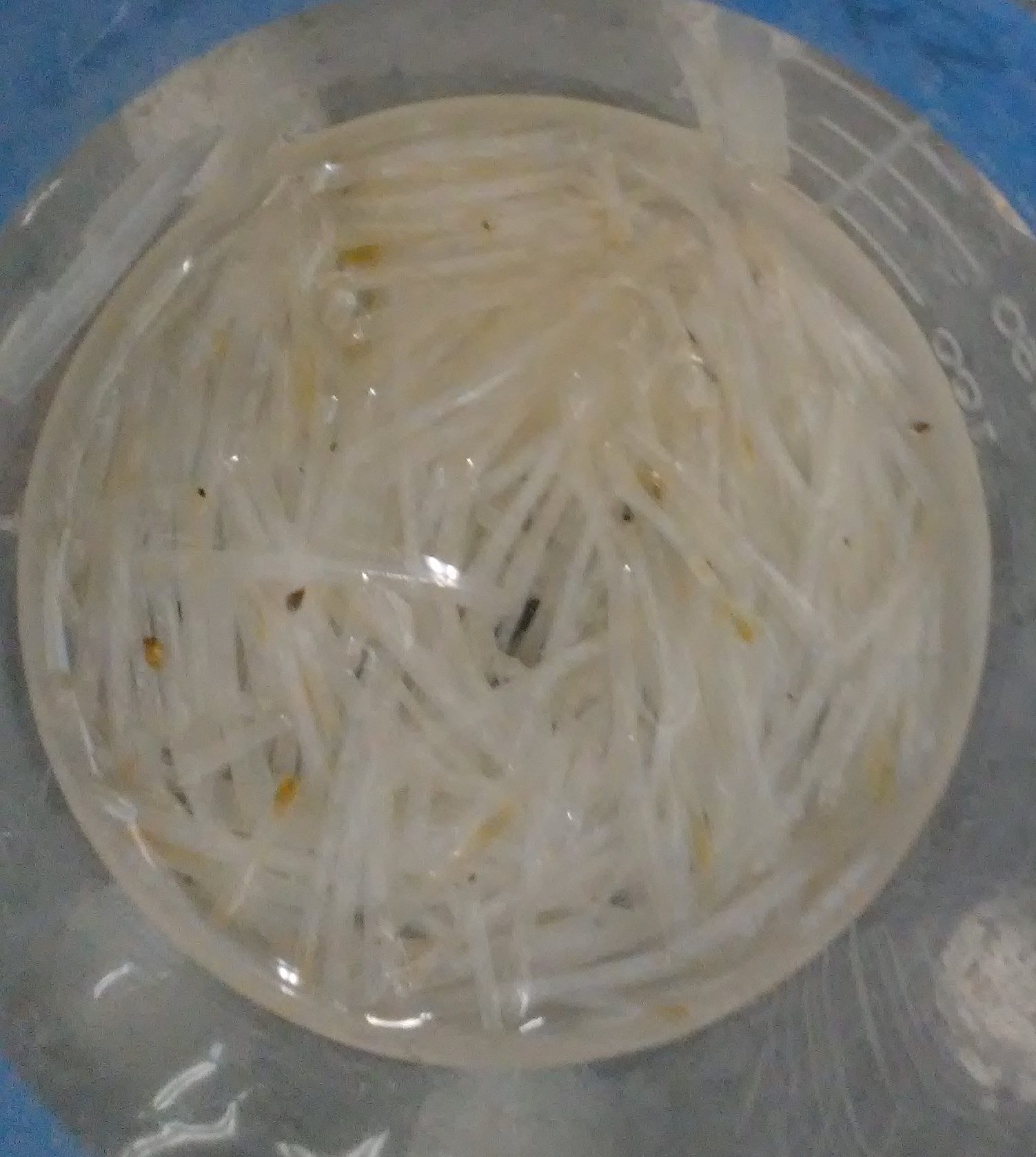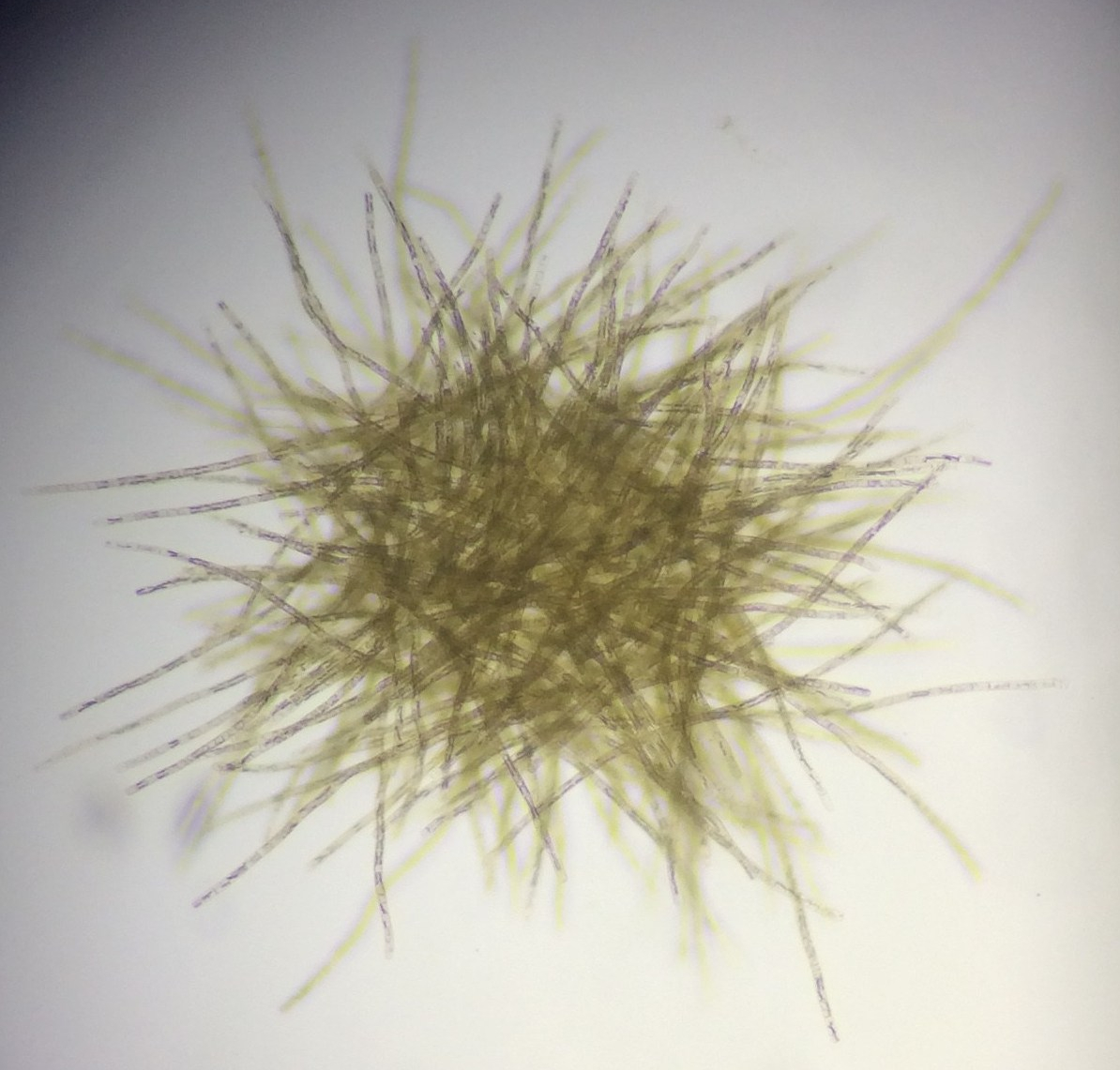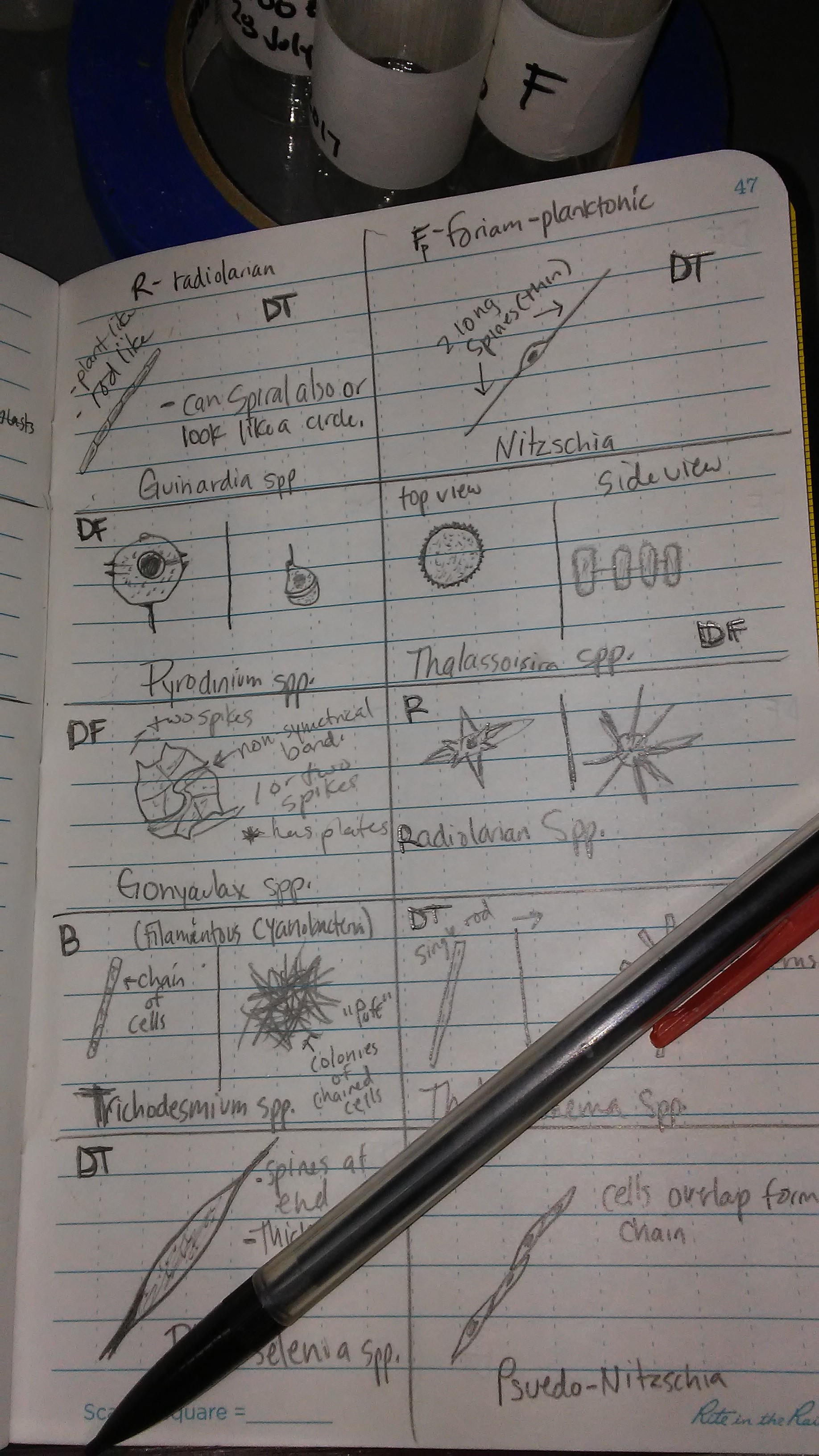
Oceanographic cruises are opportune situations for immersive learning. We see the phenomena discussed in textbooks and measure the connections between seawater chemistry, the organisms thriving in the water, and the sediment record. Aboard the R/V Hugh R. Sharp, I’ve learned new shipboard technical skills and best practices for operations while far out at sea for a long period of time. More importantly, observing our STEM SEAS/Savannah State Univ. students in action has reminded me of several traits and behaviors that I hope to keep active in my life and work.
First, play with the fine focus to view things from different perspectives. Analyze closely (400x) and from afar (40x) to get a feel for what something truly is. If you can do that for a dinoflagellate under the microscope, then you can take time to do the same for other situations and people in your life.
Second, dig deeply. If you don’t know what it is, or understand it at the first pass, take a note and sketch it out – whether it is an unidentified plankton species, technical challenge, or life scenario – and revisit it later when your mind is fresh.
Third, if it’s not perfect, let input from the group improve the process. If group-think can work to improve sampling processes while the ship is underway, it should also work to improve teaching, department operations, and household logistics.
Fourth, just because it wasn’t important in the past doesn’t mean it’s not important in a new situation. If you could ignore squiggly things in the plankton samples from Georgia estuarine and shelf samples, it doesn’t mean that you can do so in the Florida Straits. Familiar biota (diatoms) may not always comprise > 95 % of what surrounds you, so be open to letting new factors (Trichodesmium and unfamiliar dinoflagellates) ascend in significance in the data collection of your life.
Finally, remember that something seemingly familiar (Spartina wrack or Sargassum) may drift your way, but it could turn out to be something completely unanticipated (bean-sprout-like Manatee grass). While you may not need to take advantage of every opportunity that drifts your way, the ones you do choose may change your life. Get out of your comfort zone. Despite the fact that it might make you a bit queasy or you’re risking being the one to mess up the deployment of a drifter, just go for it anyway. Persevere, be brave, check off the box, and add the experience to your growing skill set.
I hope that the STEM SEAS experience is changing the lives of our students. They are certainly reminding me to see things from different perspectives, dig deep, seek input, be open to new things, and get out of my comfort zone.
-Carol Pride, Dept. of Marine & Envir. Sci., Savannah St. U.





